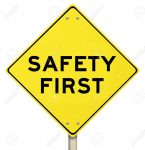The problem lies with corporations not doing enough to show employee appreciation, and truth be told, corporations themselves are the ones suffering for it.
According to CareerBuilder, 50% of employees would want to stay with a company that tangibly recognizes them, while another cites that 40% “who do not feel meaningfully recognized will not go above their formal responsibilities to get the job done.”

The Psychology of Gratitude
As reported by Harvard Medical School, research that was done at the Wharton School—University of Pennsylvania found that employees who hear a message of gratitude worked harder than those who did not.
In the research, one group solicited alumni donations regularly through cold calling. Another group that worked on a different day received a pep talk from their director before work started, expressing her gratefulness for their efforts. The second group made 50% more fund-raising calls than the other
According to Psychology Today, the areas of the brain heavily affected by appreciation are hypothalamus, the part controlling basic bodily functions, and dopamine, the “reward neurotransmitter”. Its author, Alex Korb, Ph.D., says, “Gratitude can have such a powerful impact on your life because it engages your brain in a virtuous cycle”—meaning that you are likely to be grateful to others if you are shown appreciation.
Happiness and other positive emotions can be immediately felt from giving or receiving gratefulness. You make cheerful memories, have better self-esteem, feel more relaxed, and become optimistic. Other indirect effects of gratitude include better sleep habits, increased metabolism, and less stress. The same results can be seen in the office.
Showing employee appreciation can boost their performance, well-being, and health. Employee engagement is also made better, creating more social and prosocial interaction. Prosocial is “promoting other’s well-being through altruistic acts.” Positive Psychology Program adds, “People who participated in gratitude exercises were found to be more prosocial than others.”
Now that you understand the correlation of thankfulness to the well-being of your employees, it’s time to create a plan on how to show appreciation that fits your company’s values, mission, and culture.
1. Ask and provide
Give your employees a platform to voice out their requests or concerns, perhaps through a survey. Whether it’s asking them for options on how the company can give back or letting them choose the tasks that can be assigned to them, hearing them out is one of the simpler ways you can show your gratitude. It’s a way for you to provide what the employees actually want.
2. Track their achievements
A company cannot correctly express appreciation without knowing what the workers contributed in the first place. Let them know during regular meetings that you are keeping an eye on each of their progress, and perhaps they’d be encouraged to do better until the goals are reached. This can also serve as your tracker of who to reward in the future. Giving out custom challenge coins to your best performing employees might be another good way to show your employees that you appreciate their good efforts.
3. Encourage mentoring and education
Learning new skills is essential for employees. You can use mentoring and coaching through training and seminars as tokens of appreciation, but keep in mind that these are basic requests that shouldn’t need a prerequisite. You’d want to let them continue growing in their career, especially since newly-acquired skills can also be used to develop your company further.
Senior or experienced employees can serve as mentors. With a sense of authority bestowed upon them, you get to show that you treasure their time with the company and the skills they have honed over the years. This goes the same for the trainees who are to become the mentors to future employees.
4. Celebrate birthdays and work anniversaries
Appreciation shouldn’t be limited to work-related achievements and rewards. Events like birthdays and work anniversaries may seem trivial, but these are milestones that you can utilize to give back.
With the current generation of workforce moving from one company to another more often, and some studies revealing that an employee is more likely to leave a company after a year, it’s a mistake to let these dates pass by without acknowledgment.
5. Provide free food or treat them out
It’s no surprise that everyone loves free food. So, if your team accomplished its goals, need some morale boost, or for whatever reason, the fastest way to their hearts is still through their stomachs. Thank them as a team for their hard work by taking them out for lunch or dinner or bringing snacks to the office. You can even let them choose what food to eat, or mix it up by treating breakfast instead.

6. Personalize your rewards
If you’re feeling liberal with your gifts, you can base your rewards on each of your employee’s interests or needs. This isn’t to say that a standard blanket kind of compensation doesn’t work or isn’t appreciated by the recipient, but personalization shows your staff that you took the time to know them so that you can offer something that they will definitely like.
7. Recognize non-work achievements, too
Employees’ lives don’t always revolve around work—there are activities that they cherish more than their careers. If they achieved something incredible from their extracurricular activities, too, you should learn to acknowledge it as well. Show that you value your people, both inside and outside the office.
8. Say thank you
Many employers don’t feel the need to verbally say thank you to their employees, perhaps because they think that everything an employee does is just part of their responsibility. But expressing appreciation through words in the workplace is just as necessary as it is outside. It’s the simplest way to show gratitude, without having to use company resources.
These are just some of the most common things to give back to your workforce. Learn to appreciate their hard work and for sticking around through thick and thin.















